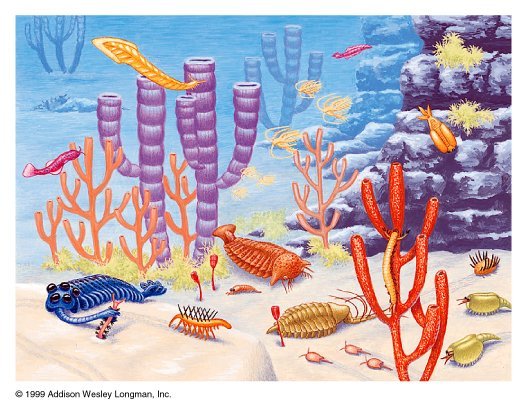
Maybe this post is to be read with an impression of 'it's so nerdy' but you really should read Bill Bryson's A Short History of Nearly Everything. It is a MUST if you are doing geology, palaeontology, physics and sciences as to make your academic learning more fun!

This is the book needed if you are doing the courses mentioned and still have not fallen in love with them. Speaking from past experiences, I can tell you that this is one of the books that made me fallen in love with geology and particularly palaeontology. Sounds nerdy, but whatever since I am grateful to say that I love studying those subjects. So what? (I know it sounds very defensive).
So back to the book, great appreciation should be given to the author, Bill Bryson. Have you ever read a science book so thrilling full of wits and imaginable descriptions put on science concepts?
It's like a very fun teacher in front of you when you slipped through the pages. It was really a page turner and for me, I read it for at least 3 times from start to finish. And the pages covered by topics I liked get more attention-probably more than 5 times of reading.

Who would not like the descriptions of Snowball Earth in a funny, meaningful and most importantly without the jargons used in research journals. I really read the book before reading Paul Hoffman's research on Snowball Earth theory. Although the latter is much more informative with tonnes of informations and concepts to be grasped the former seemed to give me fun and smiles.

Not just the theories explained by looking from a non-scientist's view was important but the author's abilities to capture our imagination to the concept in a meaningful and profound way. Who would not love fictions? The author put accounts of scientists (and their personal lives) and their journeys to discoveries. What is important is that the author did not start with "Einstein was born in Germany to a bla bla...boring" but he started to tell stories in beautiful ways. No other books can match the sexy nerdy accounts of scientists covered in the book.

Oh the Cambrian Explosion which was my favourite palaeontology topic made me to really want to go to the epoch and his account of one of the scientists' discoveries of Trilobites made me jealous of him. Why? He went for a walk on an outcrop and found the fossil. So easy! Of course I would be jealous of him. What I found here are mostly (actually all of them) Myocene's or at best Pleistocene's. To geologist-muggles, they are the period of time which are very recent. Our Miri outcrops are mostly 'young' with the ages of around just 15 million of years.


Well, if you want to feel this fun of reading a science book (in which our textbook writer should read) like me, grab it in the bookstore and you will surely want to bring it to the toilet bowl. But DON'T.
It really was a 'short' history of nearly 'everything'!-The Chukai Insider

No comments:
Post a Comment
Anonymous comments will be deleted except comments from 'anonymous' people I know. Please refrain from comments of a racist, sexist, vulgar or derogatory nature and note that comments can be edited, rewritten for clarity or to avoid questionable issues. The Chukai Insider also reserve the right to delete off-topic comments.